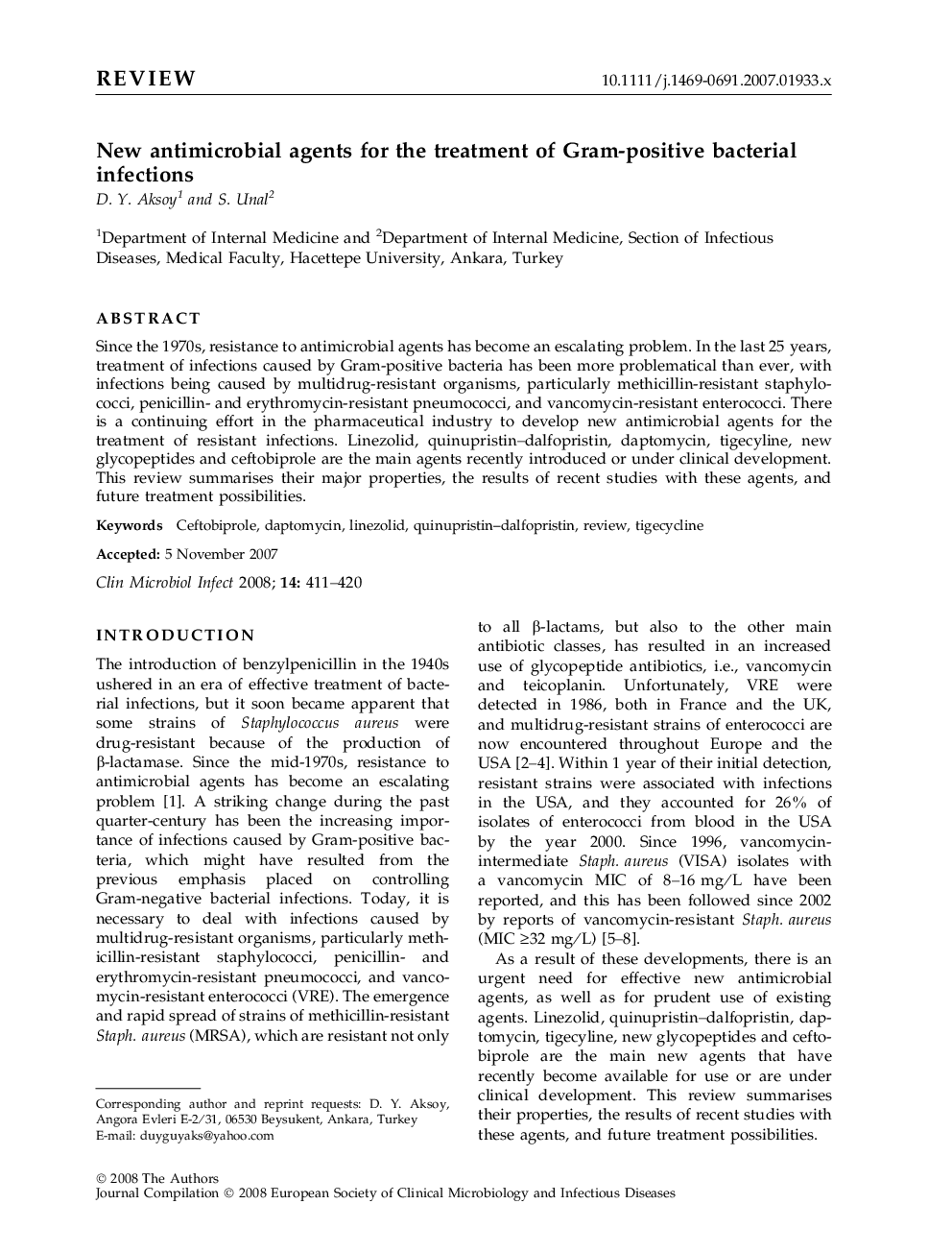| Article ID | Journal | Published Year | Pages | File Type |
|---|---|---|---|---|
| 3398681 | Clinical Microbiology and Infection | 2008 | 10 Pages |
Since the 1970s, resistance to antimicrobial agents has become an escalating problem. In the last 25 years, treatment of infections caused by Gram-positive bacteria has been more problematical than ever, with infections being caused by multidrug-resistant organisms, particularly methicillin-resistant staphylococci, penicillin- and erythromycin-resistant pneumococci, and vancomycin-resistant enterococci. There is a continuing effort in the pharmaceutical industry to develop new antimicrobial agents for the treatment of resistant infections. Linezolid, quinupristin–dalfopristin, daptomycin, tigecyline, new glycopeptides and ceftobiprole are the main agents recently introduced or under clinical development. This review summarises their major properties, the results of recent studies with these agents, and future treatment possibilities.
